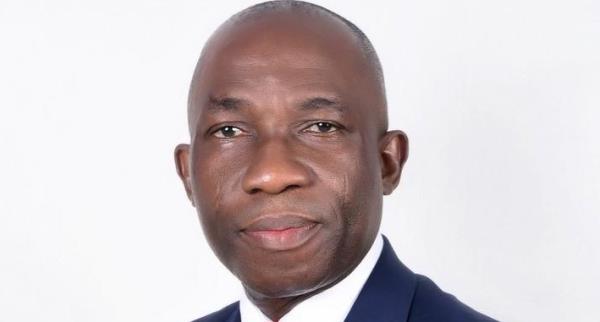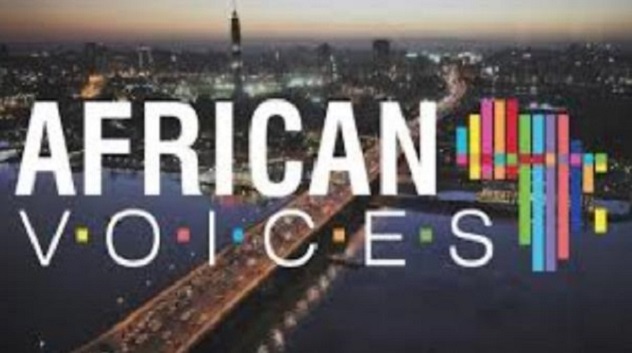Broadcasting
Nigeria Commits to Domestication of Beijing Treaty on Audiovisual

Nigeria, in the ongoing reform of its copyright system, is taking steps towards the domestication of the provisions of the Beijing Treaty on Audiovisual Performances, which came into force on 28th April 2020.

Mr. John O. Asein, Director-General of Nigerian Copyright Commission (NCC), disclosed this in his opening remarks at a Webinar with the theme: Strengthening Nigeria’s Creative Sector through Improved Rights for Artists and Performers, to mark the coming into force of the treaty.
Expressing concern over the loss of revenue in the audiovisual industry, he assured that the Commission would work with the guilds, associations and collective management organisation in the industry to develop appropriate mechanisms to ensure greater return on creative investment.
He noted that such interventions would necessitate looking into various aspects of the industry, including engagement contracts, distribution bottlenecks, online abuses and rights management issues.
The Director-General reaffirmed the Commission’s commitment to improving the protection available to audiovisual performers, especially “in today’s digital environment where copyright works are easily retransmitted on various online platforms often without recourse to the right owners or the performers.”
Noting that Nigeria’s film industry ranked among the top three in the world, he expressed worry that the ranking has not translated to real economic benefit and enhanced status for the performers “who stand before the lights and cameras transforming scripts to action”.
Mr. Asein expressed sadness that in recent times, well-known film and television actors faced with health challenges have had to appeal to the public for assistance which often came in trickles or a little too late.
“The current global pandemic has further amplified the vulnerability of creators – authors, musicians, actors and other performers – and it underscores the need to have a fallback system to sustain them beyond their active years and especially in time of economic downturn. These are people who generate or bring life to the copyright works that we enjoy but in most cases they do not have access to any form of pension or gratuity”, he stated.
The Director-General who congratulated member states of WIPO despite the fact that the Treaty was coming into force about eight years after its conclusion in June 2012, urged participants at the Webinar to provide “initial thoughts on how the balanced application of the provisions of the Treaty could help Nigeria achieve its laudable objectives.”
The Beijing Treaty on Audiovisual Performances was adopted by the Diplomatic Conference on the Protection of Audiovisual Performances, which took place in Beijing from June 20 to 26, 2012.
The Treaty modernises and updates for the digital era the protection for singers, musicians, dancers and actors in audiovisual performances. It upgrades the Rome Convention for the Protection of Performers, Producers of Phonograms and Broadcasting Organizations (1961) and complements the WIPO Performances and Phonograms Treaty (WPPT), which updated protection for performers and producers of phonograms.
The Beijing Treaty encompasses the performances of actors in different media, such as film and television, and also includes musicians when their musical performances are recorded in a DVD or any other audiovisual platform. It grants performers economic rights in fixed and unfixed performances, as well as certain moral rights.
Under the Beijing Treaty, performers are accorded four kinds of economic rights for their performances fixed in audiovisual fixations, namely the right of reproduction; the right of distribution; the right of rental; and the right of making available.
The Treaty obliges each contracting party to adopt, in accordance with its legal system, the measures necessary to ensure the application of the Treaty, including ensuring that enforcement procedures are available for effective action against any act of infringement of rights.
Broadcasting
MultiChoice Suspends Yearly DStv Price Hike as Canal+ Pushes Growth

MultiChoice has said that it will not implement its customary yearly price increase on DStv and GOtv subscriptions.

This is the first time the Pay-TV company will not be adjusting its price in April, as it has in previous years, signalling a clear shift in direction under its new owner, Canal+.
The decision, confirmed by David Mignot, group chief executive,MultiChoice in an interview with TechCentral, comes as the pay television operator grapples with steep subscriber losses across its markets.
For many households accustomed to annual April tariff adjustments, the announcement will be a welcome break.
Responding to questions about whether DStv prices would rise in April as they have in previous years, Mignot gave a firm response: there will be no increase.
He explained that the company’s immediate focus is on rebuilding its subscriber base, making this an unsuitable period to adjust prices upward.
He added that while there are no current plans for a price hike, the company has not completely ruled out adjustments later in the year, especially if economic conditions demand it, such as significant currency movements.
MultiChoice has historically reviewed and raised DStv subscription fees in April, often citing inflationary pressures and rising content costs. As recently as April 2025, bouquet prices were adjusted upwards by between 2.1 per cent and 7.9 per cent.
The DStv Premium package rose from R929 to R979 per month, while DStv Access, the entry-level satellite package, recorded one of the steepest increases.
This year’s pause represents a break from that pattern and forms part of a broader reset following Canal+’s acquisition of MultiChoice in September 2025.
Mignot, who brings three decades of experience in the pay television industry, summed up his mission in simple terms: halt subscriber losses and return the business to growth.
The urgency behind the move is evident in MultiChoice’s recent performance.
The group has lost 2.8 million linear broadcasting subscribers in the two years ended 31 March 2025, with roughly half of those losses occurring in South Africa.
In the financial year to end-March 2025 alone, MultiChoice shed 1.2 million subscribers, representing an eight per cent year-on-year decline and leaving the group with 14.5 million active customers.
The previous year saw an even steeper drop of 1.6 million subscribers. By June 2025, Canal+ indicated that the pace of decline had intensified further.
The financial impact has been significant. Revenue for the year ended 31 March 2025 declined by R4 billion to R52 billion, while trading profit fell sharply by 49 per cent to R4 billion.
According to Mignot, the company’s difficulties stem less from its programming slate and more from weaknesses in its commercial execution.
He argued that in subscription businesses, a churn rate of between 12 and 15 per cent annually is inevitable as customers relocate, experience job losses, adjust household budgets, or change priorities. Without attracting a comparable number of new subscribers each year, losses accumulate.
Mignot maintained that the content offering remains strong, particularly in sport and general entertainment. He cited flagship brands such as SuperSport, M-Net and Africa Magic as evidence of sustained investment in programming. However, he stressed that content strength alone cannot offset a weakening subscriber acquisition engine.
He noted that MultiChoice’s commercial machinery had performed robustly across Africa until around 2022, describing the current challenges as relatively recent.
Drawing on Canal+’s experience in French-speaking African markets, Mignot pointed out that pricing there has remained largely unchanged for close to 14 years, supported by a volume-driven approach. He described his strategy as one focused on growing subscriber numbers while maintaining profitability.
While he did not dismiss the possibility of reviewing prices downward in future, he indicated that no such decision has been taken.
Broadcasting
Spotify Marks 5 Years in Nigeria with 163.5% Listening Surge, Afrobeats Boom

Spotify marked five years in Nigeria since its February 2021 launch with dramatic year-on-year listening growth averaging 163.5% through 2025, featuring triple-digit surges early on and sustained momentum, propelled by Afrobeats streams rocketing +5,022% alongside booming genres like Amapiano (+10,330%), Gospel/Praise (+5,499%), Hip-hop/Rap (+3,020%), and R&B (+2,602%).

Spotify
Indigenous language music listening surged +554% in Nigeria in 2024 and +87% in 2025, with global growth at +141% and +41% respectively, underscoring rising demand for local storytelling sounds.
The platform’s Nigerian artist roster expanded +158%, fueling a discovery boom where average listeners (aged 26) streamed 150 different artists recently; users created over 25 million playlists, logged 1.4 million play hours in 2025 alone, and streamed 59 billion podcast hours total.
Top Artists (2021-2025): Asake, Wizkid, Seyi Vibez, Burna Boy, Davido.
Top Songs: “Remember” (Asake), “Dealer” (Ayo Maff & Fireboy DML), “Awolowo” (Fido), “Kese (Dance)” (Wizkid), “Lonely At The Top” (Asake), “Joy is Coming” (Fido), “With You” (Davido feat. Omah Lay), “Terminator” (Asake), “MMS” (Asake feat. Wizkid), “Doha” (Seyi Vibez).
Nigeria’s debut stream was Shiga Lin’s Cantopop epitomizing borderless discovery from day one.
Broadcasting
Pheelz Shares His Journey on Glo-Sponsored African Voices

Nigerian singer, songwriter and producer Pheelz (Phillips Kayode Moses) is set to feature this weekend on African Voices Changemakers, the flagship magazine programme on CNN International.

The 30-minute episode, sponsored by digital solutions company Globacom, premieres on Saturday, February 21, 2026. In a candid sit-down with host Larry Madowo, Pheelz opens up about his journey from church musician to global hitmaker, reflecting on the intersections of faith, fame and the expanding influence of Afrobeats on the world stage.
Now 31, Pheelz began his musical path as a multi-instrumentalist in church before earning widespread acclaim in 2012 as the producer behind the hit tracks “First of All” and “Fucking with the Devil” on Olamide’s YBNL album. His rapid rise saw him named among NotJustOk’s Top 10 Hottest Producers in Nigeria in 2013.
He further solidified his reputation by producing nearly every track on Olamide’s Baddest Guy Ever Liveth, earning nominations at The Headies 2013 and in the Producer of the Year category at both The Headies 2014 and the Nigeria Entertainment Awards. In 2020, he clinched The Headies Producer of the Year award, and in 2021 secured the Soundcity MVP Award for Best Collaboration for “Finesse,” his smash hit with Bnxn (formerly Buju).
On the programme, Pheelz reflects on the experiences that shaped his sound and creative philosophy, discusses landmark collaborations, shares his perspective on artificial intelligence and artistry, and explains why sound, storytelling and culture remain central to African music’s global resonance.
The show airs on DSTV Channel 401 at 8:30 a.m. (WAT) on Saturday, with repeat broadcasts at 12:00 noon the same day; Sunday at 4:30 a.m. and 7:00 p.m.; Monday at 4:00 a.m. and 6:45 p.m.; and Tuesday at 6:45 p.m. The broadcast schedule continues through Monday of the following week.

 General News3 days ago
General News3 days agoKPMG Strengthens Africa Leadership to Support Long‑term Growth Across the Continent

 E-Business3 days ago
E-Business3 days agoesentry 2025 Report Shows Healthcare, Financial Services and Telecoms as Staging Grounds for Increased Cyberattacks in Africa

 News2 days ago
News2 days agoNITDA Equips Federal Character Commission with Data Tools to Drive Public Sector Reform

 E-Financial2 days ago
E-Financial2 days agoHistory is Watching: Tinubu’s Moment to Rescue Nigeria’s Stolen Future

 E-Financial3 days ago
E-Financial3 days agoFlutterwave Rises from Lagos Startup to Africa’s Fintech Powerhouse

 Telecom2 days ago
Telecom2 days agoTelecom Giant MTN Injects N1.0 Trillion CAPEX into Network Expansion

 News3 days ago
News3 days agoNigeria, EU Ink Research, Innovation Deal Worth €100Bn

 General News3 days ago
General News3 days agoPalmPay Couples Show How Love Is Funded Digitally



























